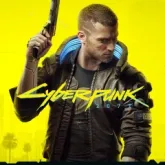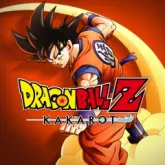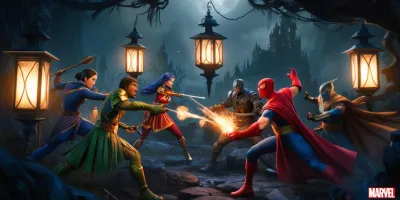Media
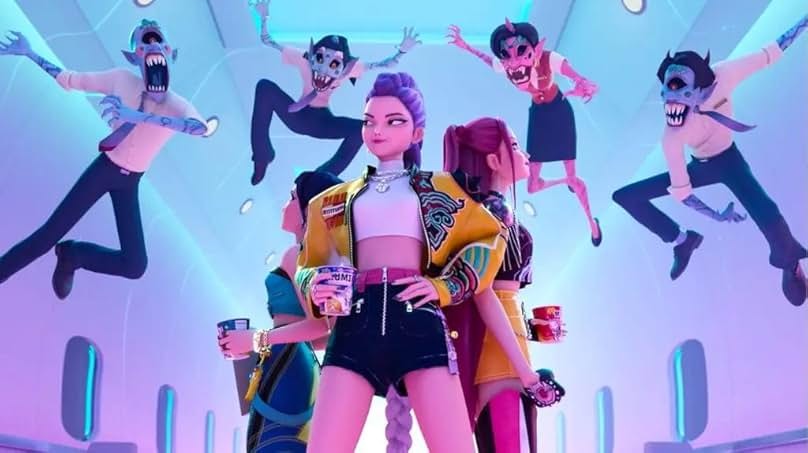
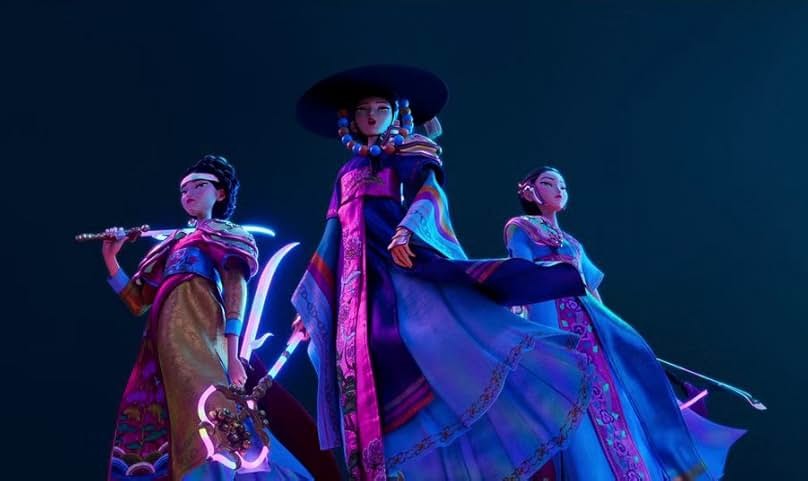
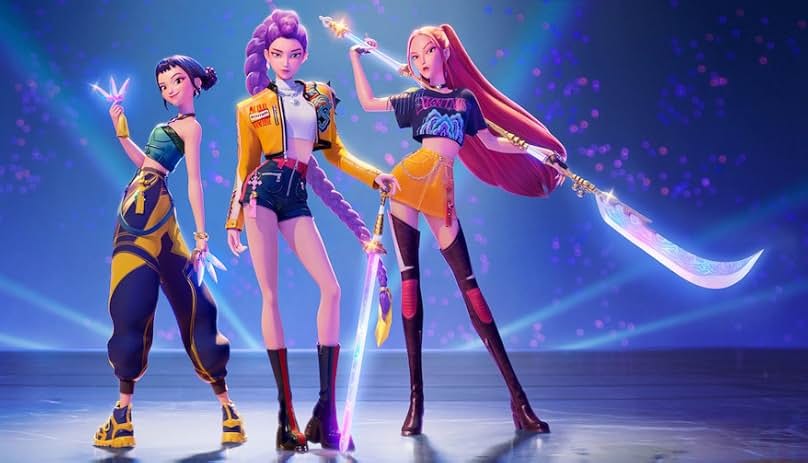
KPop Demon Hunters Review

Ramona Wainwright
Immersive Realms: A Deep Dive into KPop Demon Hunters
In a cinematic era where genre-bending narratives often challenge traditional storytelling, KPop Demon Hunters emerges as a unique fusion of pulsating music culture and otherworldly conflict. As an experienced film enthusiast with a deep appreciation for eclectic storylines, I found this film both intriguing and deeply layered, inviting audiences into a meticulously crafted universe where K-Pop’s exuberant vibrancy collides with the mysterious allure of dark mythologies.
From the outset, KPop Demon Hunters captures the imagination with a visual design that is as flamboyant as it is meticulously detailed. The director takes bold risks by merging kinetic dance sequences with atmospheric scenes of supernatural tension. These seemingly contrasting elements merge seamlessly throughout the narrative. One moment, viewers are drawn into the magnetic charm of Korean pop culture, replete with flash-cut beats and vivid choreography, and in the next, they’re plunged into ominous encounters that drive home the stakes of an ancient feud between spectral forces and passionate human resilience.
A Journey Through Sound and Shadow
The score and soundtrack serve not only as a musical backdrop but as a vital character in their own right. The pulsating beats invite audiences to rhythmically watch, stream, and download each note as if it were a secret code to unlock the film’s inner narrative. Musically, the film rides on contemporary K-Pop anthems intertwined with haunting orchestral undertones. This blend creates a delicate balance between joyous exuberance and reflective melancholy, perfectly encapsulating the film’s central theme of duality.
In one of the standout scenes, the protagonist faces a metaphoric battle, their internal conflicts mirroring the external chaos of a supernatural uprising. This resonant clash is articulated through a combination of choreographed dance battles and visual effects that make the demon harnessing appear surprisingly surreal. There is an almost tangible, magnetic quality to these moments, ensuring that viewers are not mere spectators but active participants within the narrative arc.
An Unforgettable Ensemble Performance
At the heart of KPop Demon Hunters lies the ensemble cast, whose performances breathe life into characters that oscillate between magical realism and relatable human struggles. The lead character, portrayed by an actor with magnetic screen presence, carries the narrative with a nuanced blend of vulnerability and fierce determination. Their portrayal of an individual torn between the responsibilities of earthly commitments and supernatural obligations invites viewers to reflect on the choices that shape one’s destiny. There is a palpable tension in each scene that keeps the audience glued, ensuring that every moment is as emotionally compelling as it is visually stunning.
Supporting characters, each with their own arc, contribute to a rich tapestry that is both intricate and expansive. The interplay between characters adds layers of complexity to the narrative, as allegiances blur and the lines between mentor and adversary become ever more ambiguous. This approach to storytelling is not only refreshing but also demonstrates an ambitious attempt to intertwine multiple story threads without sacrificing the film’s overall coherence.
Visual Spectacle and Cinematic Innovation
Visually, KPop Demon Hunters is a masterclass in striking contrasts and innovative techniques. The film employs an eclectic mix of traditional cinematography, augmented with modern digital effects, which creates a visually arresting experience. Every frame is a carefully choreographed interplay of light and dark, color and shadow. The rich, saturated hues reminiscent of K-Pop album covers merge with the somber tones of supernatural lore, crafting a unique, almost surreal visual narrative.
One cannot help but notice the meticulous attention to detail in every scene. The incredible costume designs reflect both the inherent glamour of pop stardom and the mystique of ancient lore. Lavish sets, combined with dynamic camera movements, serve to immerse the viewer fully—whether watching at home or experiencing the film as a stream on one of the many digital platforms available today. The seamless transitions between reality and fantasy are emblematic of a director well-versed in both modern and traditional storytelling techniques.
Emotionally Engaging Themes and Symbolism
At its core, KPop Demon Hunters is not merely an action-packed thriller but a narrative steeped in rich symbolism and emotional subtext. The film explores themes of identity, destiny, and the eternal battle between light and darkness. One of the film’s most poignant aspects is its exploration of the protagonist’s internal struggle—balancing their love for the spirited world of K-Pop with the somber realities of their supernatural legacy. This duality resonates with viewers who are often caught between modern aspirations and the weight of historical or familial expectations.
Subtle religious and spiritual motifs run throughout the narrative, presenting a nuanced critique of modern pop culture juxtaposed with enduring mythic traditions. The film invites its audience to reflect on the nature of power and transformation: how music, as an artistic medium, becomes a vehicle for expressing both exuberance and existential angst. While the battle against demonic forces is played out on a grand, almost operatic scale, it is the quiet moments of introspection that truly capture the emotional gravity of the story.
A Narrative of Resilience and Redemption
The storyline of KPop Demon Hunters is both sprawling in its scope and intimate in its personal revelations. The narrative deftly handles a tapestry of subplots, each introducing distinct elements of human resilience and the longing for redemption. Amid the vibrant celebrations of pop culture, the film navigates an underlying current of melancholy—a reminder that even in worlds awash with color and music, the shadows of loss and regret persist.
Throughout the film, viewers are treated to a variety of memorable set pieces that highlight the characters’ journey towards self-realization. Each confrontation with supernatural adversaries is not merely an entertaining spectacle but also a moment of catharsis that speaks to the complexities of growth and change. The story is ultimately one of transformation, urging its audience to consider that the fight against inner demons may be as challenging as the battle against those of a supernatural nature.
Balancing Commercial Appeal with Artistic Integrity
One of the truly commendable aspects of KPop Demon Hunters is how it balances commercial appeal with substantial artistic merit. The film smartly leverages the global popularity of K-Pop culture, offering an exhilarating sensory experience for fans of the genre, while simultaneously delivering a sophisticated, layered narrative. This dual strategy makes the film accessible and engaging for a broad audience, whether one intends to watch it casually or dive deep into its symbolic intricacies.
Despite its commercial allure, KPop Demon Hunters refuses to be boxed into a single genre. It is a film that transcends typical category confines and appeals to cinephiles who are drawn to experiments in genre fusion. The narrative unpredictability is refreshing and keeps the audience guessing at every turn. This is a film that dares to challenge conventional cinema, ensuring that even those familiar with both K-Pop and supernatural thrillers find something to marvel at.
Cultural Impact and Legacy
Beyond its immediate entertainment value, KPop Demon Hunters resonates on a cultural level. It represents a progressive pivot in the film industry, where traditional boundaries are being redrawn by visionary directors who believe in the power of cross-cultural storytelling. The film not only invites audiences to watch, stream, and even download its captivating narrative but also encourages critical discussions about the intersection of diverse artistic traditions.
Cultural commentators have noted that the movie is timely—arriving at a moment when the global popularity of K-Pop has reached unprecedented heights, and audiences are craving deeper, more complex stories. The film acts as a bridge that connects disparate worlds, enriching both the cinematic landscape and the cultural dialogue around identity, creativity, and the role of entertainment in modern society.
The Technical Marvels Behind the Scenes
A film of this magnitude does not come together without a blend of robust technical expertise and innovative methods. The production design, sound engineering, and special effects in KPop Demon Hunters have all been executed with remarkable precision. Extensive post-production efforts have ensured that every scene transitions smoothly, enhancing the immersive experience.
Modern audiences, who are accustomed to watching or streaming content on various digital platforms, will appreciate the versatile viewing options available for this film. Whether you choose to watch it as a free trial or stream it via subscription services, the film has been optimized for both download and unblocked viewing across multiple devices. The technical mastery on display further solidifies KPop Demon Hunters as a testament to what modern filmmaking can achieve when traditional storytelling techniques meet cutting-edge technology.
Audience Reception and Anticipation for Future Projects
Critically, KPop Demon Hunters has sparked conversations across fan communities and review platforms, setting the stage for a promising future in its evolving franchise. The dynamic integration of epic musical performances and supernatural confrontations offers a rich canvas for potential sequels or spin-offs. As the narrative leaves room for expanding the universe, it resonates deeply with viewers who appreciate open-ended storytelling that respects the intelligence and sensibilities of its audience.
The success of the film is evident not just in its box office numbers but also in the long-standing discussions it generates both online and offline. The film’s layered storytelling and its innovative blending of genres have made it a subject of study and admiration among film critics and enthusiasts alike. Future projects within this universe will likely build upon the groundwork established here, pushing the boundaries further and inviting even more imaginative explorations of myth and music.
Final Thoughts: A Must-Watch Masterpiece
KPop Demon Hunters is a film that encapsulates the spirit of modern cinema—a dynamic confluence of art, courage, and innovative storytelling. It challenges the expected, ensuring that audiences remain captivated from the opening scene through to its thought-provoking conclusion. For anyone interested in movies that require a discerning eye and an appreciation for cultural nuance, this film is more than just a visual delight; it is an invitation to explore a world where the phenomenal energy of K-Pop meets the enigmatic depths of supernatural lore.
The balanced narrative, memorable performances, and innovative technical prowess coalesce to create an experience that truly sets the film apart. Whether you decide to watch it at a local theater, stream it on your preferred unblocked platform, or download it for a cozy movie night at home, KPop Demon Hunters has the potential to redefine your expectations for genre cinema. It is a testament to the evolving landscape of film, where diverse creative influences come together to challenge, inspire, and entertain.
For those seeking an immersive escape that straddles the boundary between fantasy and reality, KPop Demon Hunters is a must-watch. Its daring fusion of music, magic, and mythology ensures that it will remain a talking point among cinephiles for years to come. With its combined strengths of visual spectacle and deep thematic resonance, it offers a multifaceted cinematic experience that is both entertaining and intellectually stimulating. In an era where digital platforms empower viewers to watch, stream, and download content seamlessly, this film is at the forefront—ready to be enjoyed on numerous free and subscription-based channels and, ultimately, celebrated as a modern classic in both the realms of K-Pop culture and supernatural fantasy.
How to watch KPop Demon Hunters online
KPop Demon Hunters is currently available on several popular streaming platforms. Whether you prefer to watch it live through a subscription service or stream it from websites that offer a free trial, you have plenty of options at your disposal. Some platforms also allow you to download the movie for offline viewing, ensuring you can enjoy it at your convenience. The film has been rated PG-13 in the United States, making it suitable for teenagers and adults with responsibilities to ensure younger viewers are accompanied by a guardian on more sensitive scenes. If you’re looking to experience the movie on Netflix, the platform currently offers a comprehensive library and download options. Amazon Prime Video provides rent and purchase alternatives with support for offline viewing as well, while Apple TV gives you the choice to either piece it together via rental or download the film in high-quality resolution. For those who prefer platforms like Peacock, the movie is available under both free and premium tiers, subject to download limitations on the free plan. Hulu’s offering includes similar trial options and download restrictions, and YouTube Movies features the film for rent or purchase through its dedicated app.
 The Best Part of It:
The Best Part of It:
- Outstanding visual design that merges the vibrancy of K-Pop with supernatural elements;Innovative score and soundtrack that enhances the film’s emotional depth;Strong ensemble cast with nuanced performances and character development;Cinematic techniques that create a unique and engaging visual narrative;Balanced narrative that blends commercial appeal with artistic merit;Cultural impact through its daring fusion of diverse artistic traditions
 The Worst Part of It:
The Worst Part of It:
- Complex narrative may confuse casual viewers;Genre fusion might not appeal to traditional moviegoers;Pacing issues in some segments could detract from the overall experience
Category
- Movies & TV Shows
















